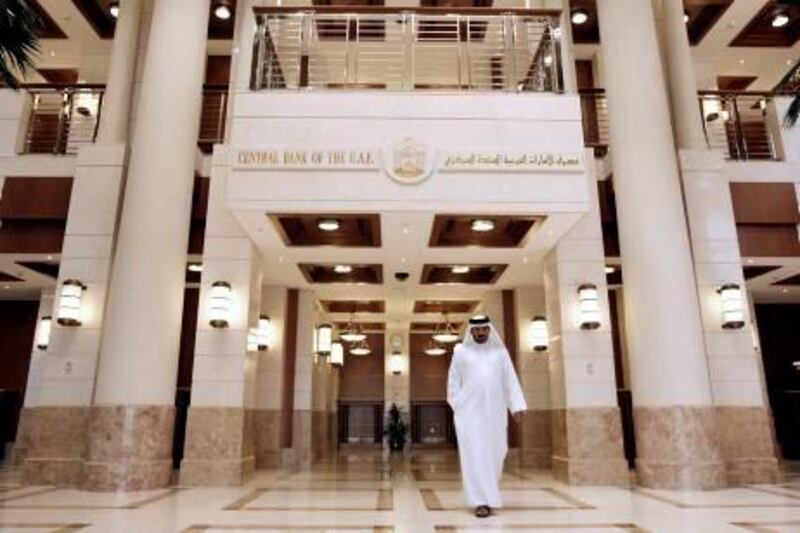The UAE Banks Federation has put forward a proposal to resolve a disagreement between commercial lenders and the Central Bank over how to implement a cap on exposures to government entities. The dispute has dragged on for more than a year.
The lobby group, which represents banks including HSBC and National Bank of Abu Dhabi (NBAD) proposed that bonds and sukuk be excluded from the limit and said banks should be given five years to comply with the new rules instead of the six months originally given.
In April last year, the Central Bank proposed a cap on holdings of government debt and gave lenders until the end of September to comply.
Banks including NBAD, Emirates NBD, Abu Dhabi Commercial Bank and Noor Islamic Bank declared that they were over the limit, but by the date of implementation no solution had been reached.
The Central Bank said it would delay the rule from taking effect while it consulted with lenders.
The banks federation said its proposal would exclude marketable bonds and sukuk from the limits, and apply a "means and purpose test" to determine whether the large exposure limits should apply to an entity.
It also recommended giving banks five years to comply fully with any new regulations.
"We are fully dedicated for continuous cooperation and consultation with the Central Bank to provide necessary proposals and best solutions to all current and future banking issues," said Abdul Aziz Al Ghurair, the chairman of the federation and the chief executive of Mashreq.
Bank shares reacted with tempered optimism to the news on the country’s stock markets, with the Abu Dhabi Securities Exchange banks index up 0.8 per cent and its Dubai counterpart flat at the close of trading.
Implementing the proposed amendments would likely be more comfortable for the banks than in its original format, said Rahul Shah, an analyst at Deutsche Bank.
"If the Central Bank were to take on board the recommendations of the UAE Banks Federation, this would greatly reduce the potential for near-term market dislocation, while at the same time encouraging the most affected institutions to have, over time, much more diversified pools of business.
"The cap initially raised the possibility that certain banks would be unable to lend to government-related holding companies tasked with spearheading the UAE’s economic diversification, such as Investment Corporation of Dubai and Mubadala, the strategic development fund owned by the Abu Dhabi Government.
The IMF had initially recommended the cap as a means of protecting the UAE’s banking sector from a repeat of the cascading wave of bad debts experienced after Nakheel and Dubai World began debt renegotiations in 2009, sparking a crisis across the emirates’ financial sector.
Bankers including Michael Tomalin, the former chief executive of NBAD, argued that the Central Bank’s directive on exposures contradicted liquidity regulations issued at the same time.
The issue lay not with exposures to healthier government-related companies but instead with firms that restructured their debts during the financial crisis, such as Dubai World and Drydocks World, said Abdul Kadir Hussain, the chief executive of Mashreq Capital.
"That’s where the additional five years will allow companies time to work them off and reduce overall debt levels," he said.
Banks “can’t keep writing blank cheques to the GREs [government-related entities],” Mr Hussain said.
"The only way the banks could make sure they don’t get into a situation that’s a repeat of 2009 is to be much more specific in their lending, and if they lend to GREs, to be much more project-specific and take a look at where the money is going."
The Central Bank declined to comment.
Separately the central bank has asked local lenders to provide details of their financial exposure to Turkey, Reuters reported citing two bankers. One Dubai banker said it did not signal an attempt to curb the banks’ exposure to Turkey.





